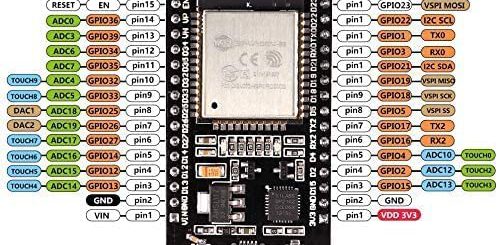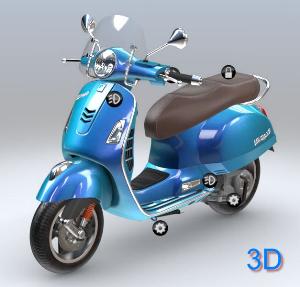Arduino: Esp32 and Winbond W25Q128JV serial flash memory
by Richard · 2024 年 3 月 30 日
With an example code(added at the end of message), It works fine with Arduino Nano IoT 33, but with esp32 I can’t see the files or write anything to the chip.
It seems to fail on SerialFlash.create() function when returning maxfiles able to write as 0.
Any idea?
Thanks
This is the example code:
————————————–
https://forum.arduino.cc/t/esp32-and-winbond-w25q128jv-serial-flash-memory/861315
#include <SerialFlash.h>
#include <SPI.h>
const int FlashChipSelect = 4;
void setup(){
Serial.begin(115200);
delay(3000);
Serial.println("SPI Flash");
if (!SerialFlash.begin(FlashChipSelect)) {
Serial.println("Unable to access SPI Flash chip");
while(1){}
}
}
void loop(){
// MAIN MENU
Serial.println("");
Serial.println("");
Serial.println("SerialFlash Read and Write");
Serial.println("(switch your terminal to no line endings)");
Serial.println("--------------------------");
Serial.println("1) Create a new file");
Serial.println("2) Open a file");
Serial.println("3) Delete a file");
Serial.println("--------------------------");
Serial.println("Select a number");
while(!Serial.available()){}
char choice = Serial.read();
while(Serial.available()){Serial.read();}
switch(choice){
case '1':
newFile();
break;
case '2':
openFile();
break;
case '3':
deleteFile();
break;
default:
Serial.println("Invalid Selection");
}
}
/* Create a new file
*
* Request filename up to 20 chars
* Request a size up to 256 bytes
* Request some contents
* Create a file
*/
void newFile(){
Serial.println("Enter a filename"); // Request filename from user
while(!Serial.available()){} // Wait for user
char filename[20] = {}; // buffer to store user filename
Serial.readBytesUntil(' ', filename, 20);
while(Serial.available()){Serial.read();}
Serial.println("Enter a filesize in bytes"); // Request file size from user
while(!Serial.available()){} // Wait for user
char sizeArray[3] = {}; // buffer to store requested file size
Serial.readBytesUntil(' ', sizeArray, 3);
while(Serial.available()){Serial.read();}
int filesize = atoi(sizeArray); // Convert char array to int (i.e. "40" to 40)
if(SerialFlash.create(filename, filesize)){ // Returns false if file already exists
SerialFlashFile file; // Open the file we just created for writing
file = SerialFlash.open(filename);
Serial.println("Write some file contents:"); // Request file contents from user
while(!Serial.available()){} // Wait for user
char contents[256] = {}; // buffer to store file contents
Serial.readBytesUntil(255, contents, 256);
while(Serial.available()){Serial.read();} // Empty read buffer
file.write(contents, filesize); // Write the contents buffer
Serial.println("");
Serial.print("New file ");
Serial.print(filename);
Serial.print(" created with size ");
Serial.print(filesize);
Serial.println(" bytes!");
}else{
Serial.println("");
Serial.println("There was an error creating this file (does it already exist?)");
}
return;
}
/* Open a file
*
* Print the directory listing
* Request filename up to 20 chars
* Open file and display contents
*/
void openFile(){
printDir(); // Function to print the directory listing
Serial.println("Enter a filename to OPEN"); // Request file name from user
Serial.println();
while(!Serial.available()){} // Wait for user
char filename[20] = {}; // buffer to store the file name
Serial.readBytesUntil(' ', filename, 20);
while(Serial.available()){Serial.read();}
Serial.println(filename);
SerialFlashFile file;
file = SerialFlash.open(filename); // open the file
if (file) {
Serial.print("File Name: ");
Serial.println(filename);
Serial.println();
Serial.print("File Size: ");
Serial.print(file.size());
Serial.println(" bytes");
Serial.println();
Serial.println("File Contents:");
char buffer[256] = {}; // create a buffer for the file contents
file.read(buffer, 256); // read file to buffer
Serial.print(buffer);
}else{
Serial.println("File not found!");
}
return;
}
/* Delete a file
*
* Print the directory listing
* Request filename up to 20 chars
* Delete File
*/
void deleteFile(){
printDir(); // Function to print the directory listing
Serial.println("Enter a filename to DELETE"); // Request file name from user
while(!Serial.available()){} // Wait for user
char filename[20] = {}; // buffer to store file name
Serial.readBytesUntil(' ', filename, 20);
while(Serial.available()){Serial.read();}
SerialFlash.remove(filename); // Delete the file
return;
}
/* Print Directory
*
* Print a list of all files on the chip
* Stolen from SerialFlash library example "ListFiles"
*/
void printDir(){
Serial.println("Directory Listing");
Serial.println("-----------------");
SerialFlash.opendir();
while (1) {
char filename[64];
uint32_t filesize;
if (SerialFlash.readdir(filename, sizeof(filename), filesize)) {
Serial.print(" ");
Serial.print(filename);
spaces(20 - strlen(filename));
Serial.print(" ");
Serial.print(filesize);
Serial.print(" bytes");
Serial.println();
} else {
break; // no more files
}
}
}
void spaces(int num) {
for (int i=0; i < num; i++) {
Serial.print(" ");
}
}









